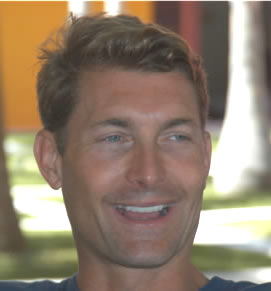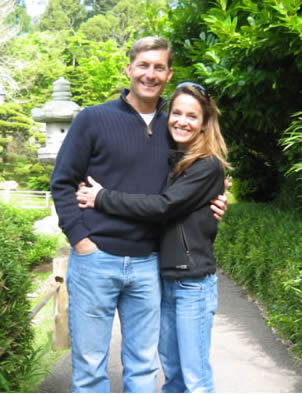
This week’s interview is with Gary Swart, the CEO of oDesk. oDesk is like Elance except it’s primarily for programmers, and it incorporates a lot of tools to make working with programmers easier. I also spoke in depth with Gary about how to hire an experienced CEO – Gary was brought in to take over the management of oDesk.
Full Interview Audio and Transcript
Personal Info
Hobbies and Interests: Triathlons, surfing, everything outdoors, cooking, travel.
Favourite Sports Teams: I would rather be playing than watching and any team my kids are on.
Favourite Books:
- It’s Not About the Bike: My Journey Back to Life by Lance Armstrong
- Sway: The Irresistible Pull of Irrational Behavior by Ori Brafman and Rom Brafman
- Outliers: The Story of Success by Malcolm Gladwell
- Winning by Jack Welch
- Many cook books
Favourite Entrepreneurs: Reed Hastings.
Company Website: http://www.odesk.com/
Fast Track Interview
Adrian Bye: So, today, I’m here with Gary Swart, who is the CEO of oDesk. oDesk is a company that’s focused around outsourcing and making it easier to manage outsourced teams. Gary, do want to tell us a little bit about yourself, your company and what else you guys do?
Gary Swart: oDesk is a global marketplace. We let employers hire, manage and pay world class technical talent at globally competitive rates. At oDesk employers can hire based on skills or work history, feedback ratings, pay rates, etc. The matching service is the first piece of our offering. Next, once the employer hires, they can manage directly as if they were in their own office. This occurs visually in real-time using a unique collaboration in the management solution we’ve built. The third piece of our solution is management of pay and includes payment and accounting for hours worked based on auditable time logs. We’ve figured out how to pay cost effectively in over 60 countries. So, think of oDesk as a one-stop-shop for staff augmentation or project needs to hire, manage and pay.
About me personally, I’ve been at oDesk for two years now. I came from an ill-fated startup, Intellibank, which got defocused trying to be extended relationship management. Prior to that, the balance of my career was spent in the software development tools space. I started at Pure Software, which became Rational, then IBM and spent about eleven years working at these companies.
Adrian Bye: Why would I care about working with oDesk when I can find people on Elance or another site and not have to worry about using all of your stuff which seems like a lot of work?
 Gary Swart: You can go to an Elance or you could go to a Craigslist and post your requirement but that’s just a match. You are just finding talent that can help you, but what about building and maintaining trust in that relationship? What about collaborating and communicating? Then, how are you going to pay those people? Similarly, for the provider though they find work, they are not building their reputation and they’re not guaranteed they will get paid. They could do months of work and end up getting shafted not because an employer meant it to happen, but because money ran out or others things occurred.
Gary Swart: You can go to an Elance or you could go to a Craigslist and post your requirement but that’s just a match. You are just finding talent that can help you, but what about building and maintaining trust in that relationship? What about collaborating and communicating? Then, how are you going to pay those people? Similarly, for the provider though they find work, they are not building their reputation and they’re not guaranteed they will get paid. They could do months of work and end up getting shafted not because an employer meant it to happen, but because money ran out or others things occurred.
So, we help create a trust environment where not only can an employer finds a good match based on history and on what past buyers say, but also by facilitating management and payment.
Adrian Bye: How do your tools fit in with existing project management tools?
 Gary Swart: Our platform gives you the capability to monitor and communicate with your workers. For example, in order for me to get paid, I need to log into your team room and as soon as I do, you’re tracking all of my time. But, not only are you tracking my time, you’re also tracking my work. It’s like I’m sitting in the cube next to you and at any point during the day or night, you can ‘walk’ by my cube and see what’s on my desktop. We do that by giving you a screenshot of your provider’s desktop six times an hour, as long as they’re logged in to the team room.
Gary Swart: Our platform gives you the capability to monitor and communicate with your workers. For example, in order for me to get paid, I need to log into your team room and as soon as I do, you’re tracking all of my time. But, not only are you tracking my time, you’re also tracking my work. It’s like I’m sitting in the cube next to you and at any point during the day or night, you can ‘walk’ by my cube and see what’s on my desktop. We do that by giving you a screenshot of your provider’s desktop six times an hour, as long as they’re logged in to the team room.
The concept of visibility breeds accountability. Additionally, an employer may not like a direction the hire’s going on a design or on a story they’re writing or whatever the work product may be and can, of course, correct them in real-time.
Adrian Bye: When you talk about those corrections, you mean an employer can view the entire screen very easily, is that correct?
Gary Swart: That’s correct. It’s a thumbnail and you double click to expand it to full screen size. So, the employer can actually look at the provider’s code, can look at their design. An employer can look at whatever work product is on the provider’s desk. That happens six times an hour at random intervals as long as the provider is logged on in the team room. At the end of the week, the sum of the hours logged in the employer’s team room gets sent to them as an invoice. The employer can click on any of those hours to see exactly what the provider was doing. So, it’s fully auditable.
Adrian Bye: They are able to see the provider is working, or is it just a snapshot?
Gary Swart: We not only provide the snapshot but also have a status bar that shows keyboard strokes and mouse events and even add one other element. There is a camera, so the employer can make sure that it’s actually the provider working at the machine and they are not farming the work out to someone else. Then we also add the concept of a work memo and with the frequency the client desires, a little window pops-up and asks the provider to share what they are working on.
Adrian Bye: Let’s say, you had to pick the top three reasons people spend large dollar amounts like $8,000 through your system rather than the $300 spent on other sites, what would you say those would be?
 Gary Swart: The flexibility of time-based work. The work diary, the visual, historical audit trail of work activity and the ability to only pay for hours worked, which takes a lot of the risk out of the process. Then, the other thing is pay management. It’s nice at anytime, to know what you’re paying for, to see your invoice. We can do the contracts, all the 1099s around the world and there’s a lot of value in that.
Gary Swart: The flexibility of time-based work. The work diary, the visual, historical audit trail of work activity and the ability to only pay for hours worked, which takes a lot of the risk out of the process. Then, the other thing is pay management. It’s nice at anytime, to know what you’re paying for, to see your invoice. We can do the contracts, all the 1099s around the world and there’s a lot of value in that.
Adrian Bye: You charge 10% commissions, right?
Gary Swart: That’s correct. We charge at 10% on the direct labor rate. If you visit www.odesk.com, the rates you see on a provider’s profile are set by them and include the oDesk fee. We tell providers, “Look, you decide how much money you want to make and we’ll add 10% on top of that.” That’s the rate that we advertise to our buyers.
Adrian Bye: So on to some startup questions. Do you feel you now fit the role of experienced management or would you imagine starting your own thing?
Gary Swart: There are lots of options and there are lots of opportunities as well. I definitely feel like the experience I have gotten here over the last two years has been fantastic, especially learning this type of a business. There’s not only the skill, there’s also the ability to acquire knowledge about the domain and you can’t take that for granted.
Adrian Bye: What was your experience before you came on?
Gary Swart: I was an entrepreneur earlier in my career, went into technology and rose through the sales ranks. Then, ran the small to medium business practice at Rational, which was about 40% of the company’s revenue. I had a pretty substantial responsibility there along with the failed start-up mentioned before under my belt when I came here. That failure was an eye-opener and a valuable experience for me, mostly lessons on what not to do that I think uniquely prepared me for this opportunity.
Adrian Bye: If entrepreneurs are thinking about hiring a CEO or COO, what would be your recommendations? What should they be looking for?
Gary Swart: There are probably four areas that are important. Number one, are personal characteristics because they encompass things you can’t change. I don’t care how much skill or knowledge or motivation a person has, if they don’t have integrity, if they’re not a good communicator, if they’re not hardworking, you can’t teach those things. In other words, you can teach a chicken to climb a tree but you’re better off getting a squirrel in the first place. Next, is motivation. Why does the person want to do that specific job and why do they think they’d be good at?
The third important element is skills. Do they have skills in building, maintaining and retaining A+ teams? Do they have skills in attracting talent? Do they have skills in raising money? Do they have strategic or tactical skills that are important to the company at that stage? Then, the fourth important factor is knowledge. By knowledge, I mean, are they coming out of a domain where they’ve already done this? For example at oDesk it was important marketing-wise, to get an individual who understood Internet marketing as opposed to traditional software marketing.
Adrian Bye: Will you ever consider you’ve grown the company enough and it’s time for someone else to take over?
Gary Swart: It depends, though if that’s what the business needs, I’d be happy to help bring in the right person. I have very little emotion around that. I look at it and say, “Look, if oDesk wins, we all win.” There are plenty of opportunities for everybody. I’m pleased to have the reins and to grow the business as far as I can take it, but at any time, if I’m not the right person then I’d be glad to not only step aside but to help to bring the right person in. I’m actually confident in my abilities to do that as well, to help attract the right talent for the company.
Adrian Bye: Is there anything else you’d like to tell us about oDesk or that we should know but didn’t cover?
Gary Swart: Yes. I think we’re approaching the market uniquely and add a lot of value in the ‘manage and pay’ part of the equation. As we move into next year, you’re going to see new twists and opportunities. I encourage any company having difficulty in finding good talent or in building their team to give us a try and let us know how it works. We enjoy getting feedback because it helps us continuously make oDesk better.
Adrian Bye: Thanks for your time.









